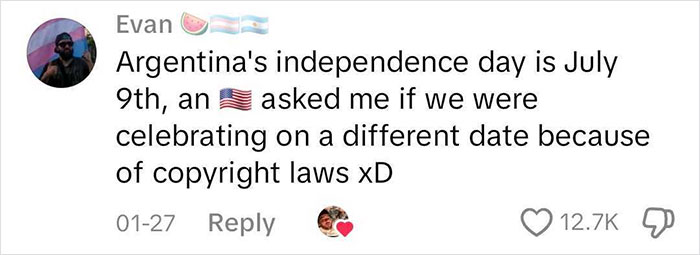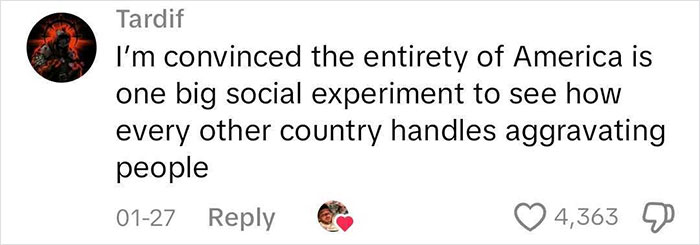USA, you’ve got a lot going for you. But let’s be honest, some of your fellow citizens don’t always help when it comes to shaking off certain stereotypes, especially about general knowledge, geography, and, well, common sense.
Robin Perry, a Brit who has heard it all, decided to document some of the most baffling conversations he’s had with Americans in a recent TikTok. From people genuinely believing everyone in the UK has met the Queen to the inevitable “Wait, you guys don’t celebrate the 4th of July?”—these interactions will leave you both amused and slightly concerned. Check them out below!
One British man has heard some truly unbelievable things from Americans over the years

So, he took to the internet to document the funniest and most baffling moments

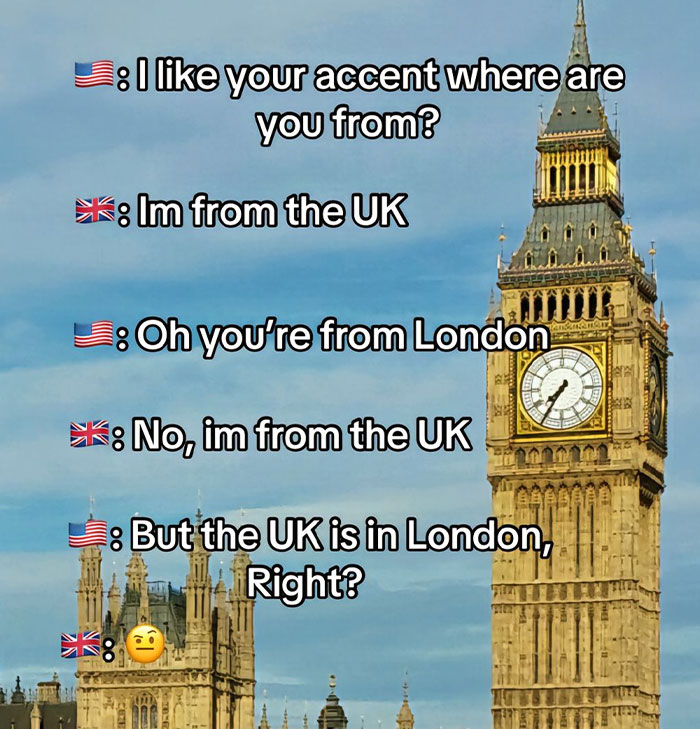




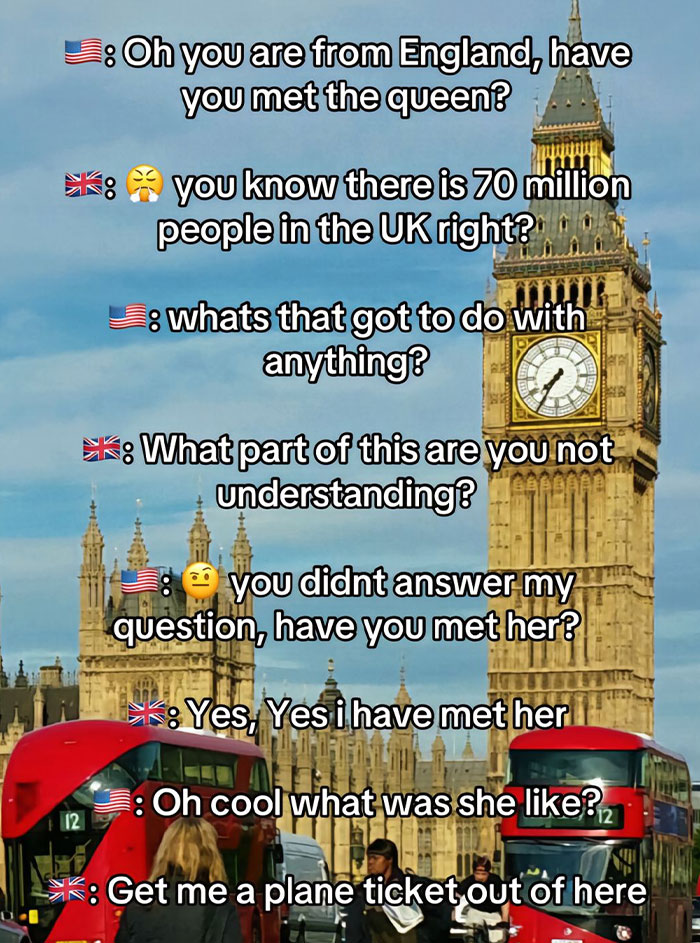

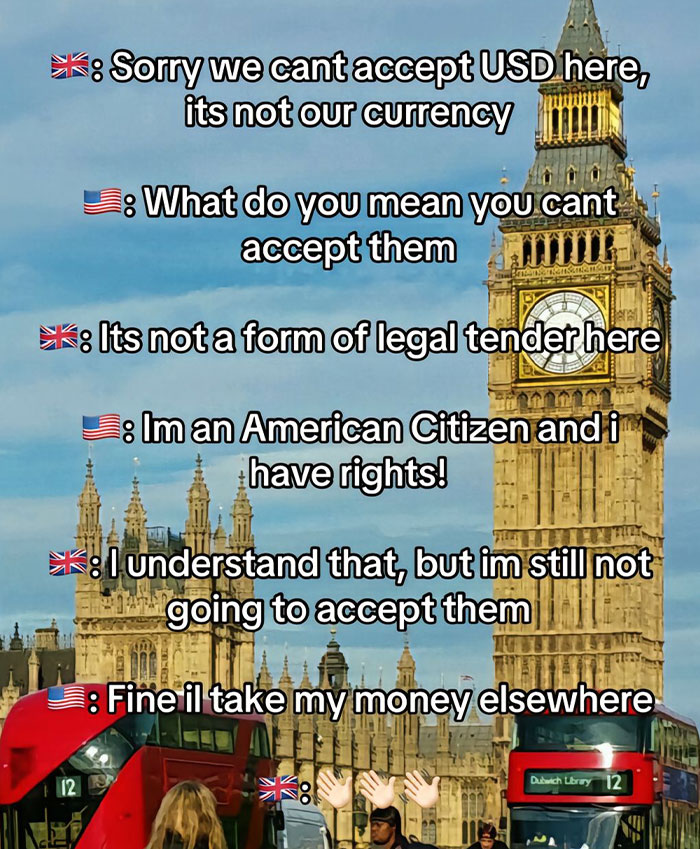

Are Americans actually stupid?
Some might be tempted to say yes. Others might rush to defend their intellectual capabilities and say no. But in reality, the best answer is probably—some are.
According to the latest Survey of Adult Skills by the Organization for Economic Co-operation and Development (OECD), which measured literacy, numeracy, and problem-solving abilities in 31 countries, the U.S. ranked 16th—right in the middle. The UK, by comparison, placed 9th, while Finland, Japan, Sweden, Norway, and the Netherlands topped the list.
American adults may not rank the highest, but they’re also not at the bottom. What’s worrying, however, is that the numbers show a decline over time. When this survey was first conducted in 2018, 18% of American adults scored at Level 1 or below, the lowest literacy category. By 2024, that number had risen to 27%. In numeracy, the share of low scorers went from 28% to 34%.

Image credits: aleksandarlittlewolf / Freepik (not the actual photo)
To understand what that means, the survey categorizes literacy and numeracy skills into levels, with Level 1 being the lowest functional category. Adults at this level can understand short texts and simple lists when the information is clearly presented. Those below Level 1 struggle even with basic sentences. In numeracy, Level 1 scorers can handle simple math with whole numbers, money, and basic charts but may have difficulty with tasks requiring multiple steps, like solving a proportion. Those scoring below Level 1 can only do basic addition and subtraction with small numbers.
With roughly a third of Americans now falling into these lower categories, it’s worth asking what’s causing this disparity.
One key factor is socioeconomic status. Research consistently shows that people from lower-income backgrounds tend to score worse on intelligence tests. In the previous OECD survey, Americans with the highest literacy scores had incomes, on average, 60% higher than those with the lowest scores. The lowest-scoring group was also twice as likely to be unemployed. In short, wealthier Americans performed better.
The 2024 OECD report also found that higher-scoring adults were significantly more likely to report high life satisfaction and excellent health. This suggests a strong link between cognitive ability, financial stability, and overall well-being.
So the real question isn’t whether Americans are unintelligent—or whether poverty equals stupidity. The real issue is inequality. When people lack access to education, resources, and opportunities, their cognitive performance suffers. The focus should be on closing that gap, ensuring that success isn’t determined by wealth, but by potential.
As expected, viewers were concerned about the state of education across the pond







Many chimed in with their own hilarious encounters

